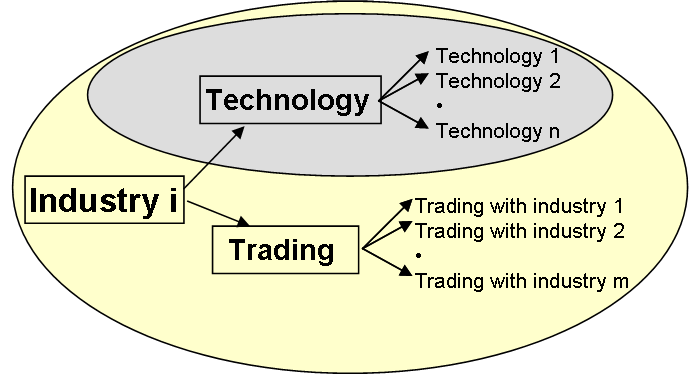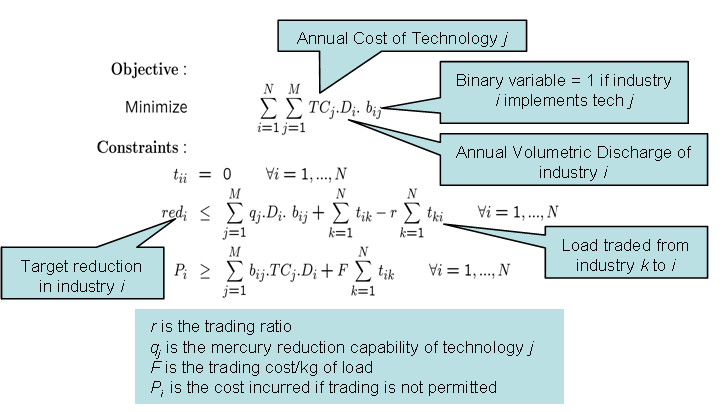Mercury Pollutant Trading: Decision Making for Cost Effective and Sustainable Waste Management:
Market based pollutant trading is explored in the setting of mercury waste management in a watershed. Trading is based on the regulations such as Total Maximum Daily Load (TMDL) and allows industries to satisfy regulations at lower costs. The work proposes an optimization based decision making framework. The framework allows the industries to take optimal decisions so that the individual regulations are satisfied at the reduced cost and the broader goal of pollution minimization is also achieved at optimized cost. The framework allows decision makers to consider watershed specific data and information so as to arrive at optimal decisions regarding regulations. This will make the subsequent tasks easier to manage. The preliminary results suggest substantial cost savings in treatment costs. But they also highlight that trading increases the overall discharge (although still below the regulation limit). This is associated with higher adverse health effects and health care costs. The benefits of trading should therefore be carefully weighed. Consideration of these health care cost in decision making is important. Uncertainties also affect the decisions and costs.

